Can Canned Cat Food Be Left in a Hot Car? Will It Go Bad?
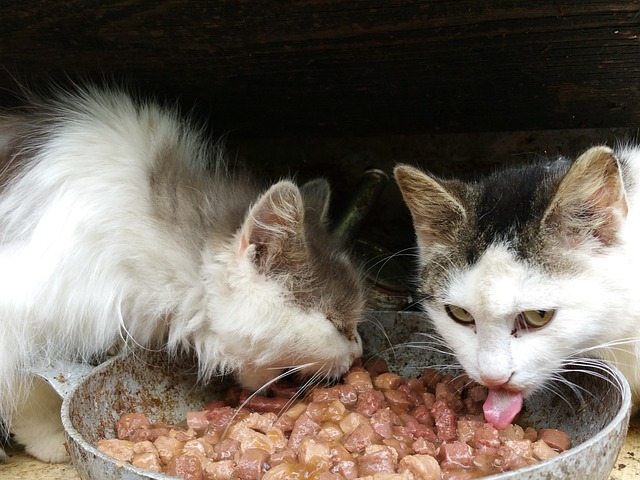
Hot cars and canned cat food - a recipe for disaster?
Worried about the impact of heat on your furry friend's favorite meal? 🐾
Picture this:
You come back to your sweltering car, the temperature hitting you like a punch in the gut.
Your heart sinks as you glance at that forgotten can of cat food, wondering if it's gone bad.
Don't fret, my friend.
Let's dive into the sizzling topic and uncover the truth together.
Ready?
Let's begin.
Can Canned Cat Food Be Left in a Hot Car?
Leaving canned cat food in a hot car is not a good idea.
I mean, come on...
We all know how hot it can get inside a vehicle on a scorching summer day. And you wouldn't want to risk your cat's health, would you?
Here's the deal: exposing canned cat food to extreme heat can lead to bacterial and fungal contamination, which is obviously bad news for your feline friend.
Trust me, you don't want any of that!
Even storing the cans in your car trunk on a hot day can be unsafe.
The temperature can reach insane levels back there!
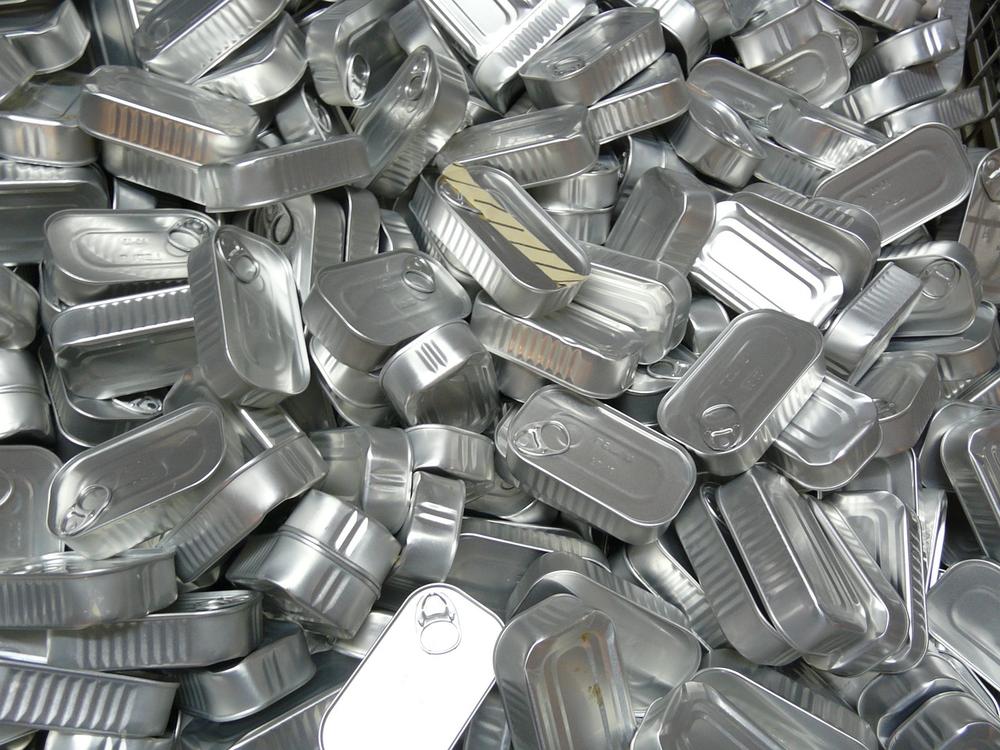
So, what should you do?
Well, first things first, if you accidentally leave canned cat food in your toasty car, just toss it out.
Don't take any chances with your cat's health.
As for dry cat food, it's generally more resistant to spoiling in heat, as long as it remains intact and the temperature stays regulated.
But let's not go putting it in an oven or leaving it in a hot car, okay?
If you absolutely have to store canned cat food in a hot environment, like when you're traveling with your furry buddy, keep it cool by placing it in a cooler with some ice packs.
Safety first, folks! 🐱
Main points I'll expand upon further down this article:
- High temperatures can negatively affect flavor, fragrance, and quality of canned cat food.
- Sealed cans can withstand temperatures above 140°F for two hours.
- Prolonged exposure or temperatures above 90°F can cause spoilage in opened cans.
- Dry cat food can withstand high temperatures.
- Proper storage temperature for canned cat food is between 40-45°F.
- Chemical preservatives extend the shelf life of unopened cans.
- Sealed cans remain safe for consumption for approximately five years.
- Glass jars can undergo color changes and nutrient loss under direct sunlight.
- Canned cat food should be stored below 84°F to prevent nutrient degradation.
- Caution should be taken when warming canned cat food to avoid overheating.
But what exactly happens to canned cat food when it's left boiling in a hot car?
Well, I'm about to unravel the mysteries and give you all the juicy details.
So, grab your curiosity cap and let's dive into the intriguing world of heat-infused cat food!
How Long Are Canned Goods Safe in the Heat?
| Exposure Time | Effect on Canned Cat Food |
|---|---|
| Up to 2 hours | Sealed cans can withstand temperatures above 140°F without significant negative effects. |
| Over 2 hours | Prolonged exposure can lead to acid or moisture content reactions and nutritional degradation. |
| Above 90°F | Opened cans are more susceptible to spoilage in high temperatures. It is advisable to avoid leaving them in temperatures above 90°F. |
When it comes to canned cat food left in a hot car, you need to be careful, my friend.
High temperatures can seriously ruin that food.
Believe me, you don't want your furry friend eating spoiled cat food.
When canned cat food is left in hot places, its flavor and smell suffer.
Who wants their cat food smelling like garbage from yesterday?
Not only that, but the quality of the food can also decline.
It's not just about taste and smell here. Sealed cans can handle temperatures over 140 degrees Fahrenheit for up to two hours - pretty impressive, right?
But listen up, when those scorching temperatures linger...well, things start going downhill.
Acid and moisture content reactions occur, causing the food to degrade in both taste and nutrition. Imagine opening that can after it's been baking in the car for hours...it loses all its flavor and, more importantly, essential nutrients your precious cat needs. Once canned cat food reaches its temperature limit, there's no turning back. It's finished.
In fact, heat can make that food spoil even faster, especially if it's been opened. For maximum safety, store canned cat food at a cool temperature around 40 to 45 degrees Celsius.
And don't forget, that's just the storage time - you have to say goodbye to it within a mere 5 to 7 days. Chemical preservatives can extend the shelf life of unopened canned food, so watch out for those.
Typically, unopened canned food lasts between four months to three years, depending on the product.
Sealed cans are good for around five years, while unopened ones stay fresh for up to a year from the production date or about a month after the best-by date.
So, bottom line?
Don't mess with your cat's food and leave those hot temperatures behind.
Can Canned Food Explode in a Hot Car?
The dangers of canned food in hot cars
Let me tell you something important:
Cats and hot cars don't mix well.
But did you know that canned cat food can actually explode if left in a hot car?
Crazy, right?
Heat overexposure can spoil the food
When canned cat food gets too hot, it spoils quickly.
The heat breaks down the nutrients in the food, making it less healthy for your furry friend.
Studies have even shown that the nutrient levels in canned cat food decrease significantly after being exposed to high temperatures.
But there's more to it...
Container explosions are a real danger
Inside a can of hot cat food, pressure builds up so much that it can cause the container to burst or even explode.
Imagine coming back to your car after a day out and finding cat food all over the place...
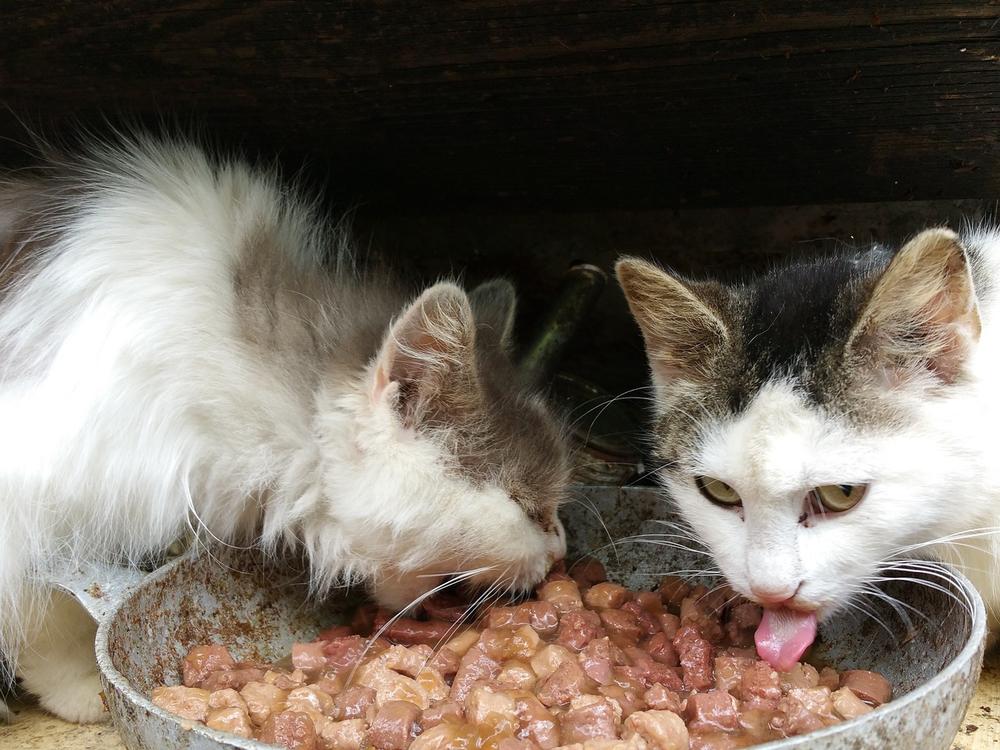
It's not just messy, but it can be dangerous for both you and your cat.
Signs of spoilage and potential harm
If you see a swollen or bulging can of cat food, trust me, it's best to avoid it.
These cans might not be sealed properly, allowing bacteria to get in and potentially harm your cat.
Also, glass jars of cat food can lose nutrients and change color when exposed to direct sunlight.
So, here's the deal:
Feeding your furry friend cat food that has been exposed to excessive heat is a recipe for disaster.
Check for any signs of spoilage before serving to keep both you and your precious pet safe.
It's better to be safe than sorry, for you and your fur baby.
But wait, there's more to know about storing canned cat food!
If you think heat is the only culprit, think again.
Discover the best storage temperatures and learn how to maximize the freshness and nutritional value of your feline friend's favorite meals...
Canned Cat Food Storage Temperature
Canned cat food and its storage temperature is a popular topic.
You might be wondering if leaving it in your hot car will make it go bad.
Let's dive into the details.
First off, canned cat food likes to stay cool.
Keeping temperatures below 100 degrees Fahrenheit is ideal for maintaining quality and preventing bacteria. And hey, to protect nutrients, it's even better to keep it below 84 degrees Fahrenheit.
And guess what?
Heat isn't just an issue for canned food.
Dry cat food can also lose its vibe when exposed to high temperatures.
So keep an eye on both types of food when things get hot.
Now, let's talk leftovers.
Don't let your canned cat food sit out and become a breeding ground for germs. Refrigerate it promptly at 40 degrees Fahrenheit or lower.
And be sure to finish those leftovers within two days for fresh and safe consumption by your furry pal.
If you're dealing with frozen canned cat food, store it like a boss. Put it in an airtight container and pop it in the freezer. It'll remain nutritious and tasty.
By the way, where you store those cans matters too.
Cool places like the fridge, freezer, pantry, cupboard—even under the bed—work great.
Just avoid drastic temperature changes and extremes.
Oh, and here's a valuable tip:
Keep canned cat food away from heat sources.
That means no placing it near ovens or—listen up—never ever store it in your hot car! 😺
Trust me, keeping the food fresh is much easier than recovering from a breakup with your toasty automobile.
How Long Can Canned Wet Cat Food Sit Out?
After opening a can of wet cat food, it should not be left at room temperature for more than 20-30 minutes to prevent bacterial growth. Opened cans can be stored in the fridge for 5-7 days, while unopened cans can last for 4 months to 3 years.
Let's have a chat about canned cat food, alright?
I don't need to tell you that cat food can be tricky.
You care about your furry friend and want to give them the freshest and most delicious food possible.
But how long can wet cat food stay out before it becomes inedible?
Listen up: once you crack open that can of cat food, the clock starts ticking.
Actually, you shouldn't leave opened cans of wet cat food at room temperature for more than twenty to thirty minutes.
Yup, just a short amount of time.
Why?
Because once that cat food warms up to room temperature, bacteria sees it as a free-for-all.
And believe me, nobody wants their cat feasting on a bacterial party.
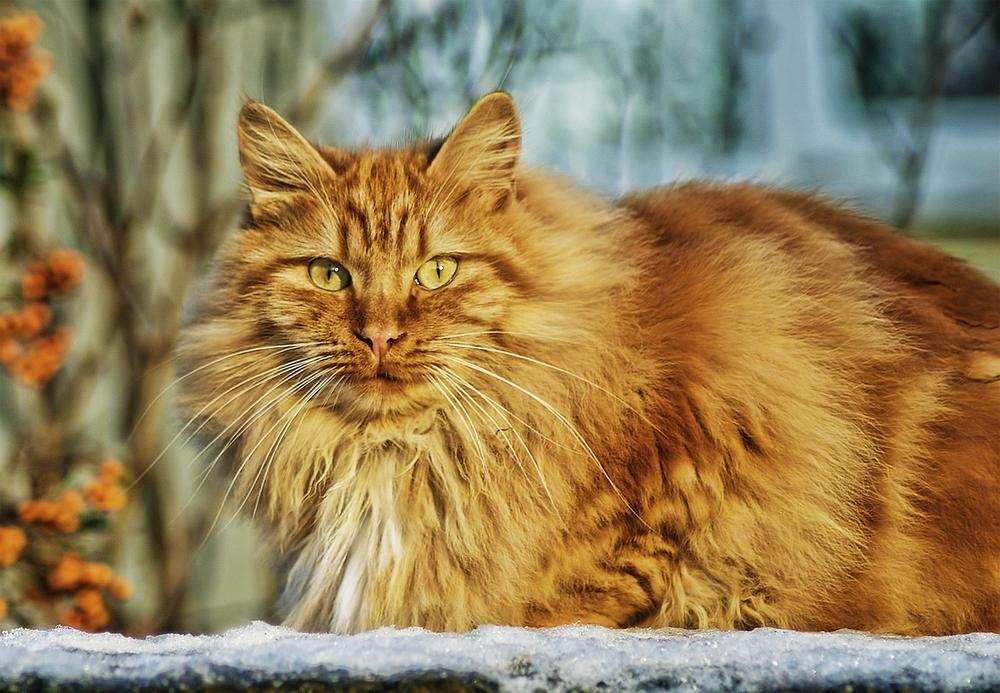
Trust me, it's not fun.
If you want to make your cat food last longer, here's what you can do:
Put any opened cans in the fridge and try to use them within five to seven days.
That way, you're keeping those pesky bacteria away and ensuring your cat always gets a fresh meal.
Now, if you happen to have unopened cans of cat food laying around, the rules are different.
You can store unopened cans in the fridge for anywhere between 4 months to 3 years.
Impressive shelf life, right?
But remember, once you crack one open, you only have that same five to seven day timeline.
Here's the bottom line: cats deserve the best, which means feeding them food that won't make them sick.
So, don't leave opened cat food out for too long, store leftovers in the fridge promptly, and keep your furry friend happy and healthy.
But how can you tell if that canned cat food left in a hot car has gone bad?
Let me show you how...
Determining if Canned Cat Food is Spoiled
When it comes to canned cat food, your priority is making sure it doesn't go bad.
Because let's face it, you don't want your furry friend getting sick from eating spoiled food.
So how can you figure out if canned cat food has gone bad?
Well, there are a few signs you should pay attention to.
Firstly, give those cans a good inspection.
Take a close look for any dents or cracks because these could mean the food has been tampered with or compromised.
If you spot any of these issues, it's best not to take any chances and just toss that can away.
And here's a biggie...bulging cans.
When you see a can that's starting to protrude, it's a clear sign that harmful bacteria have taken over. This means you should always get rid of bulging cans immediately - no ifs, ands, or buts about it.
Don't ignore your sense of smell either.
A funky odor can be a big warning signal that the canned cat food has gone off.
It's better to be safe than sorry, so if it smells weird or unpleasant, just throw it out. No need to risk it.
Now, let's talk about mold. Don't mess around with anything that shows signs of mold growth. Mold can produce toxins that can harm your cat, so keep an eye out and get rid of any food that's infected.
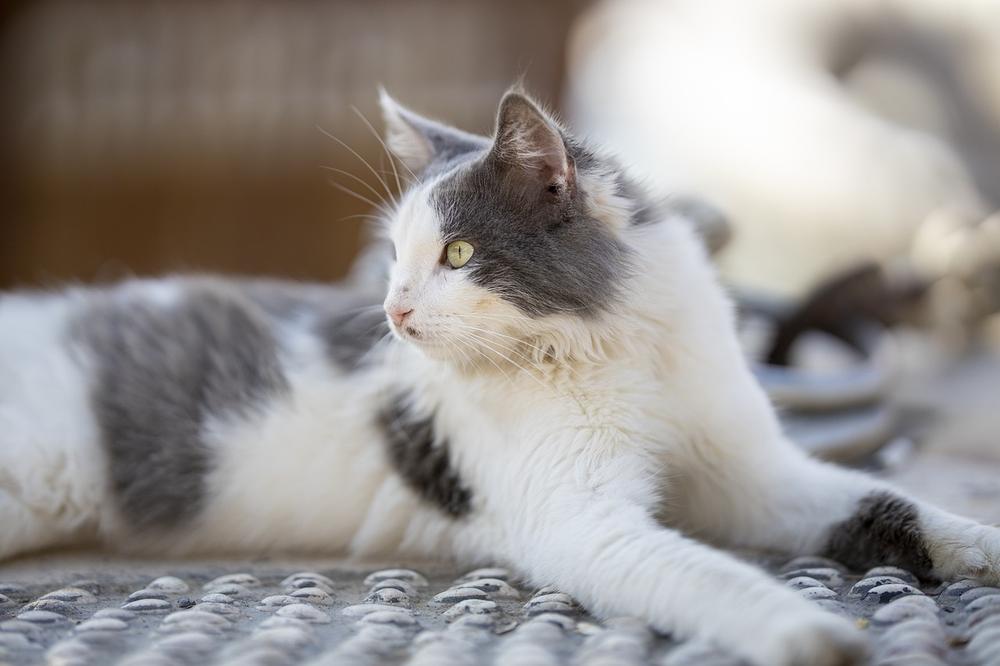
Don't take any chances when it comes to your furry friend's health.
Oh, and one more thing to watch out for - significant deformations in the shape of the can.
This could mean that the food was exposed to super high temperatures, which is a breeding ground for bacteria.
So, whenever you notice a wonky-shaped can, alarm bells should start ringing.
By the way, expiration dates aren't just suggestions.
They're there for a reason.
Check them when you buy canned cat food and ensure to toss anything that's past its expiration date.
It's always better to be safe than sorry.
Now, if you stay vigilant and follow proper food storage and handling practices, you can rest assured that your cat's meals will always be safe and delicious.
And hey, who doesn't want their furry friend to enjoy some tasty grub?
And remember, when it comes to the health of your furry friend, I want the best for you and your cat.
That's why I highly recommend checking out my article Are You Adding Water to Dry Cat Food.
Can Food Be Too Hot for Cats?
Overheating canned cat food can be dangerous, putting your furry friend at risk of botulinum attacks.
To protect your cat, you need to heat the food properly, using methods like microwaving or double boiling.
But be careful not to overheat it. Too much heat can ruin the taste and make it less appealing to cats.
If your cat shows any negative reactions to certain foods, it's best to avoid them altogether.
Keeping your cat safe and satisfied is all about finding the right balance in their meals.
And that wraps up today's article.
Before you leave, can I ask you something? Did my blog post help you out? If it did, I would be extremely grateful if you could share it with your loved ones. You can simply click on any of the social media sharing icons for instant sharing. Thank you so much!
Talk soon,
-Sarah Davis